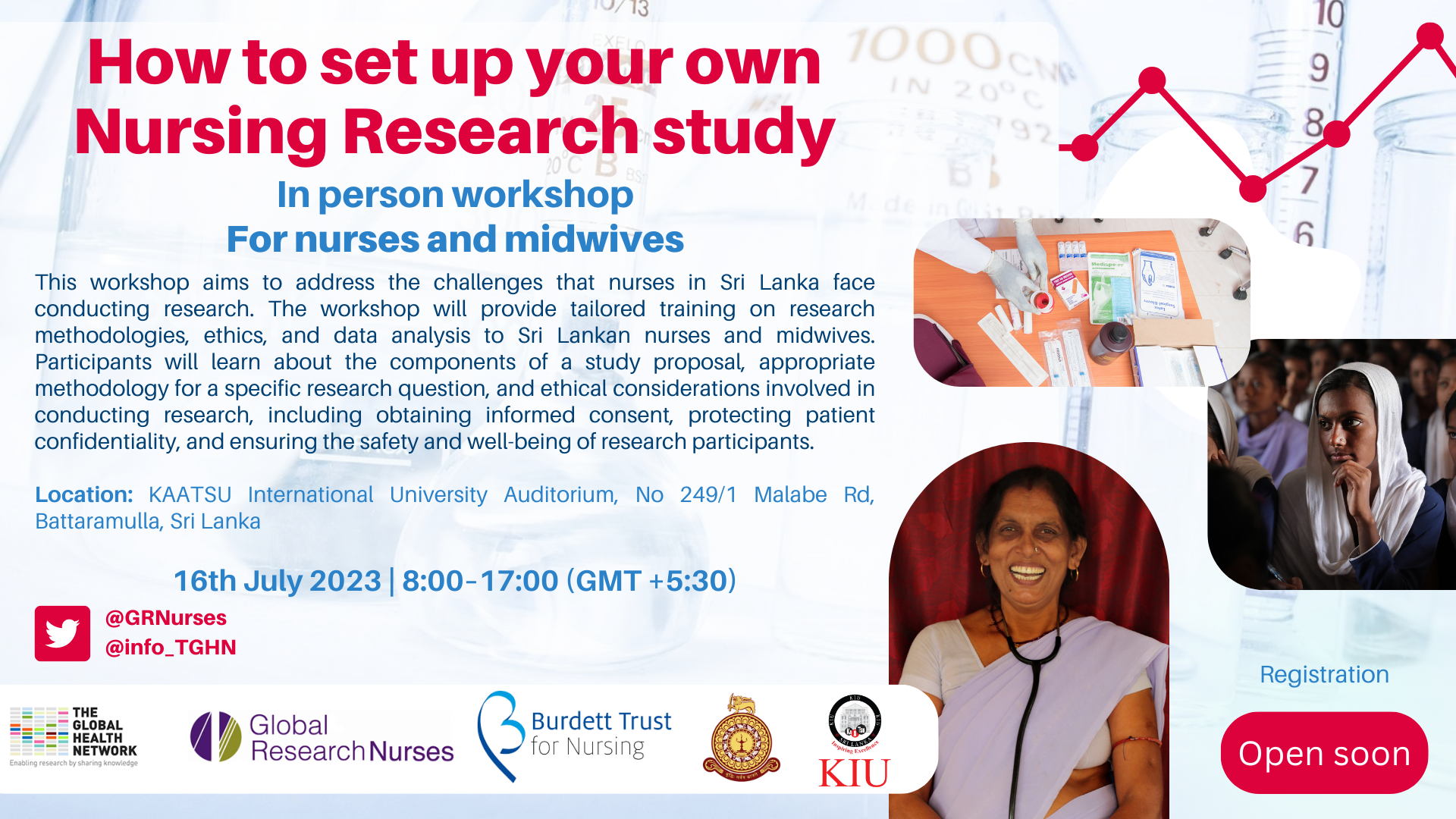
How to set up your own Nursing Research studyFor Nurses and MidwivesIn person workshop16 July 2023
Abstract – Background to the workshop The Sri Lankan context of evidence-based practice in nursing is very much poor when comparing the global context. Various challenges and barriers exist to evidence-based practice. Nurses who are engaged in clinical practice are reluctant to conduct research. Lack of knowledge and exposure regarding clinical research, language barriers and lack of computer and IT literacy, time limitations due to heavy workload, and staff shortage are the major barriers for them to conduct research. There are no pathways to empower nursing professionals toward the research culture. Most Sri Lankan nurses are diploma holders and they receive very limited knowledge and exposure regarding the research within the nursing diploma curriculum and it is not mandatory to conduct research during the nursing diploma education. Very few nurses with a bachelor’s degree and enough knowledge and exposure are absorbed into the government nursing profession. Evidence generated by the other countries is not much compatible with the Sri Lankan context and utilizing such evidence for changing the practices is not suitable. It emphasizes the need for our own research to acquire evidence-based nursing. Even though few nurses conducted research, those research does not provide sound evidence to change the existing nursing practices. Necessary knowledge and skills for research should be provided for the nurses. Special research education and training, workshops, and consultations will address the barriers and fill the gaps in knowledge and skills of nursing research. Developing the research capacity of nurses is crucial for bridging this gap and empowering them to conduct high-quality research studies that inform health policy and practice. Research capacity building of the nurses in low- and middle-income countries, where research is often underfunded and underprioritized is a timely need. The proposed workshop “How to set up your own Nursing Research study” aims to address this gap by providing tailored training on research methodologies, ethics, and data analysis to Sri Lankan nurses and midwives. The workshop will focus on specific research needs, providing practical guidance and support for designing and conducting research studies which will enable the participants to set up their own Nursing Research study. At the beginning of the workshop, participants will be acknowledged regarding why nurses need to conduct research and the importance of nursing research for providing an impulse for research. Then participants will be guided regarding the components of a study proposal, and how to choose the appropriate methodology for a specific research question. Participants will then learn about the ethical considerations involved in conducting research, including obtaining informed consent, protecting patient confidentiality, and ensuring the safety and well-being of research participants. Overall, this workshop aims to empower nurses and midwives to conduct high-quality research studies that will contribute to the body of knowledge in nursing and inform best practices in patient care. |

Aims and objectives of the workshop:
- To assess the baseline knowledge and attitudes of nurses and midwives on nursing research.
- To improve attitudes towards conducting nursing research and evidence-based practice
- To improve the knowledge and skills of nurses and midwives to set up their own nursing research study
- To assess the knowledge and attitudes of nurses and midwives on nursing research after participating in the workshop


 Time: 8-5pm (GMT +5:30)
Time: 8-5pm (GMT +5:30)